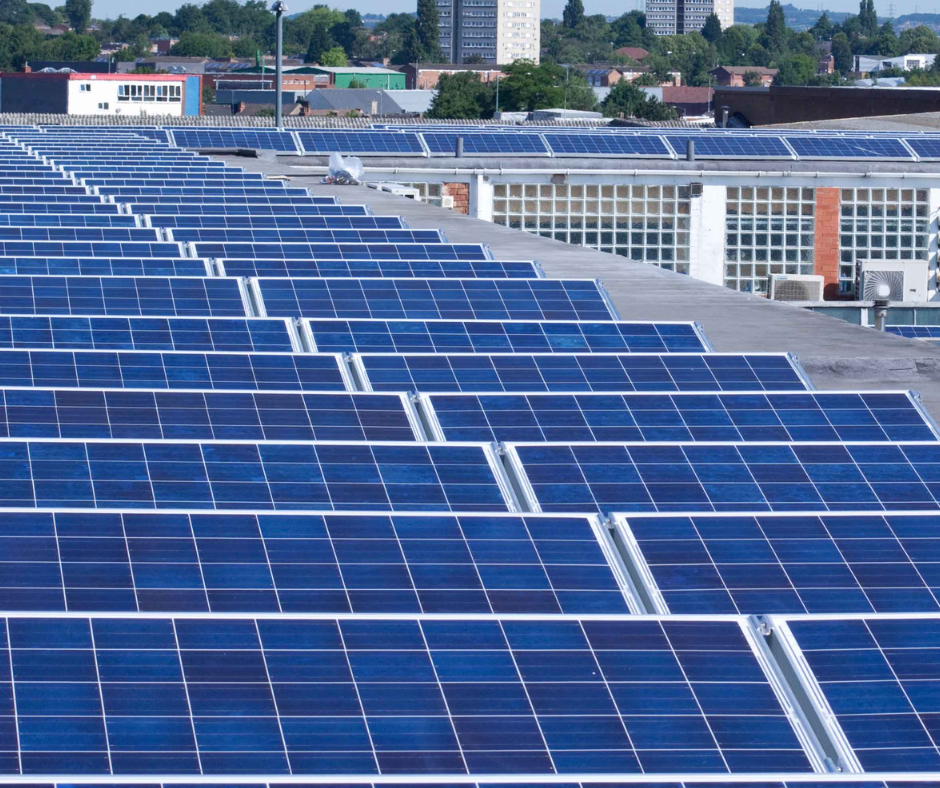Commercial solar installations in Alberta earn revenue from carbon credits
You could earn $12,210 per year by 2030 for a 200kW system
Written by Ernest Yap

Not many commercial solar producers in Alberta know they can earn revenue from carbon credits. In fact, all residential or commercial installations from 1 kW to 5000 kW qualify, but many owners are not aware.
Carbon credits are generated by renewable energy producers, and sold to emitters who are mandated by the Alberta government to pay for their emissions. Because the carbon market was designed to fund massive utility-scale solar and wind projects, the cost to report and certify credits is too expensive for residential and commercial systems to do alone.
Here lies the opportunity.
Energy aggregators (such as Rewatt Power) aggregate small solar installations into “collective power plants”. With this large pool, aggregators sell the collective’s credits to regulated buyers at the highest price. As a result, small solar producers share costs, take advantage of volume power, and earn revenue you couldn’t earn before.
If this is you, here’s what Rewatt estimates you could earn from our solar credits program.
Revenue estimate for 200kW commercial solar installation in Alberta
For a 200kW commercial solar system, you could generate carbon credits that generate revenue between $69,648 to $99,823 over 10 years.
Note: If you have a smaller or larger system, Rewatt publishes its revenue estimates and fees.
A 200kW system generates about 240MWh per year. Assuming a solar derate loss of 2% per year, here’s what is estimated for 2023 with a grid emissions factor of 0.53:
| Year | Conservative Estimate | Aggressive Estimate |
| 2023 | $4,953 | $5,239 |
| 2024 | $5,766 | $7,068 |
| 2025 | $6,588 | $8,052 |
| 2026 | $7,319 | $8,925 |
| 2027 | $7,898 | $9,828 |
| 2028 | $7,695 | $10,602 |
| 2029 | $7,560 | $11,424 |
| 2030 | $7,425 | $12,210 |
| 2031 | $7,290 | $12,960 |
| 2032 | $7,155 | $13,515 |
| TOTAL | $69,649 | $99,823 |
These estimates already account for the 25% sales transaction fee for microgenerators. There are no other fees.
Conservative vs. aggressive: what’s the difference for Alberta solar carbon credits?
The conservative case is based on carbon credit prices using historical trends. We believe that an Alberta solar carbon credit will be sold at prices 35% lower than the Canadian carbon price. We assume prices will hit a ceiling at $90 per credit by 2027 because buyers may considering building their own clean energy plant at this price. There’s a good chance that inflation will bump this threshold up so Rewatt will adjust as our data comes in.
The aggressive case is based on selling Alberta solar credits at prices 20% lower than the Canadian carbon price. There is no ceiling on the price of credit.
Right now, credits prices are better than our aggressive case. In 2022, the carbon price was $50/tonne of CO2e, but we’ve been selling credits for $43/tonne of CO2e. In 2023, we will update as soon as we make some transactions.
Why are earnings increasing every year until 2030?
The Canadian carbon price is regulated to increase, and we believe the credit price will mirror this. In 2023, the Canadian price is set at $65/tonne of CO2e, and it is mandated to increase $15/tonne every year until it reaches $170/tonne by 2030.
We don’t think credit prices will be the same as the carbon price. The carbon credit price is dictated by buyer demand, which is why it is variable year by year. Alternatively, the price of Alberta carbon credits could hit a low too.
For the commercial solar producer, there is no risk of losing money. This is a matter of earning more or earning less from Alberta solar carbon credits.
I want to get a commercial solar grant from the Alberta government. Can I still earn carbon credits?
The answer is likely “No” for provincial grants.
However, most federal grants seems to be OK.
To make sure, you need to check the terms and conditions of the grant contract for a section called “environmental attributes” or “environmental credits”. Usually it says that you’ll convey the environmental attributes to the government.
Why?
The grants are funded by emitters who didn’t buy carbon credits and have instead opted to pay the penalty. So it would be double-dipping to earn credits from this, and it would not be reducing emissions.
Grants have the advantage of giving you upfront money before installation. Credits are incentives based on performance after installation. Credits earn you more over the long-term.
Ready to Join Rewatt's Alberta Solar Credits Program?
If you’re a commercial solar producer and you want earnings from Alberta solar carbon credits, you can learn more.

